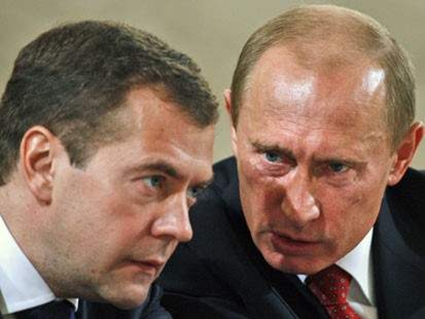All Planned in 2006: What does Russia Have in Store for Georgia Next?
Tbilisi is meeting the start of the August, seven years on from the 2008 War, with empty hands again. Until now, the crawling annexation and economic embargo remain as “peaceful” weapons that Russia uses instead of tanks and bombardiers. Seven years after the Russian intervention once more the Kremlin has decided it does not like Georgian wine and politics. Georgia is included in the list of the countries in which Russia plans to implement counter sanctions. It seems that the Tbilisi version of the “reconciliation” policy is not enough for Moscow and it demands more from us.
Recently, Russia’s main sanitary Genady Onishchenko pointed out with regret that they had opened the Russian market to Georgian wines so widely that the majority of the wines “did not satisfy the standards.” According to the spokesman of President Putin, the President is ready to sign counter sanctions for seven more countries, including Georgia. Georgian analysts think that the economic sanctions of the Kremlin are only part of the punishment plan that the Kremlin has for Georgia. Blocking the central highway, occupying the Thruso Gorge, getting hold of the Enguri hydro power station and the entire power system of Georgia, continuation of the crawling annexation – this is what political scientists expect from the Russian side after the opening of the NATO-Georgia joint training center. And if Georgia moves any closer to the alliance, they do not exclude wide-scale actions and say Georgia will have to expect approximately the same as Ukraine has been witnessing for the past year and a half.
For Russia, the results of the August 2008 war are part of the plan. It was revealed during President Putin’s visit to Armenia a couple of years back when, at the joint press conference of President Putin and his Armenian counterpart, a stubborn journalist asked President Putin (not for the first time) what his response was to the accusation of the military authorities against Medvedev. Putin had an incredible response: “Yes, I developed the plan during 2006-2007; our militants were training Ossetian formations upon my order and Medvedev only had to activate this plan. The question referred to the confrontation of then-President Medvedev and military generals three years before at which time militants accused President Medvedev of being late in starting military operations against Georgia. This “belated start” was followed by the military losses that Russian militants still cannot get over. According to the Russian Strategy and Technology Analysis Center, Georgians shot down six Russian military airplanes in the five-day war, including three Su-25, two Su-24 and one Tu-22M3. It was also established that after the conclusion of the conflict, an air collision took place and two planes crashed – an Mi-8MTKO and Mi-24. At the same time, three tanks were destroyed: T-72BM, T-72B, T-625. Nine BMP-1, three BMP-2, two BTR-80, one BMD-2, three BMDM-2 and one MTLB-6 were destroyed along with 20 units of auto machines. As for the live force, Russia as a rule does not count live force itself, as the famous phrase of Stalin goes: “I have not counted soldiers” is still very topical in the Kremlin. This is why any reliable data on lost soldiers is not known, apart from data from the Russian military prosecution.
The most interesting fact in this whole story is, of course, Putin’s recognition that the Russian General Headquarters had developed a military action plan against Georgia back in 2006. This plan considered that the Russian army would enter Georgia not only from the side of Tskhinvali but from the side of Abkhazia. It considered air and missile attacks on Gori and Poti; information and technology (internet-hacker) diversions, and more. Everything was outlined and prepared in detail – including the deployment of Iskandar missiles in Dagestan.
In this whole epopee of the August war, the comment of the current Prime Minister of Russia, Medvedev, takes last place. When visiting the 58th army in Vladikavkaz, he said: “If we hadn’t backed off in 2008, the geopolitical picture would be different now and a number of countries that are artificially dragged to the North-Atlantic Alliance would most probably be there already. It means that in our proximity emerge not military forces of our neighbor country but a military bloc… a bloc, which, for very clear reasons, raises certain concerns for us.” He made this statement in the context of the eastern expansion of NATO. Therefore, we will soon see how Putin’s 2006 plan will play out once NATO Secretary General Jens Stoltenberg visits Tbilisi on August 26 and opens the NATO training center in Georgia.
Zaza Jgharkava












